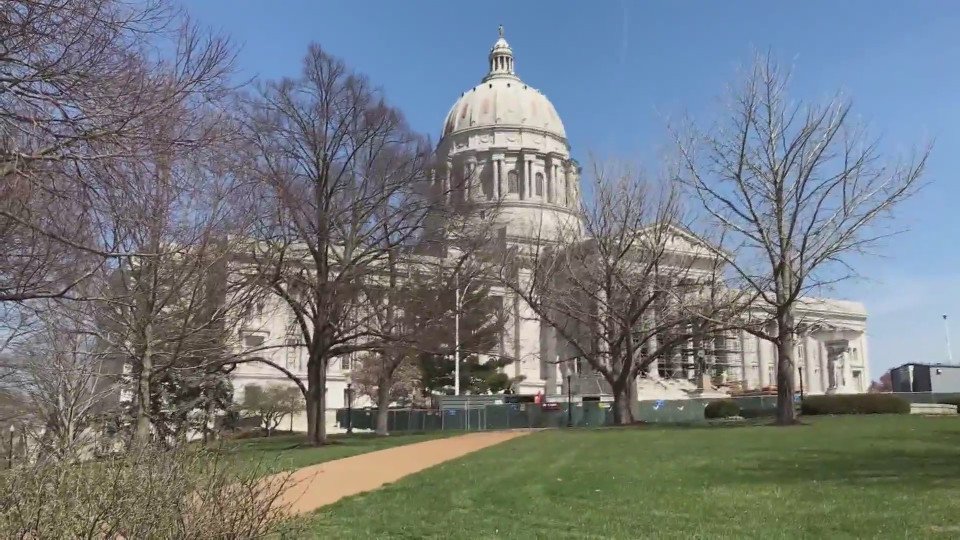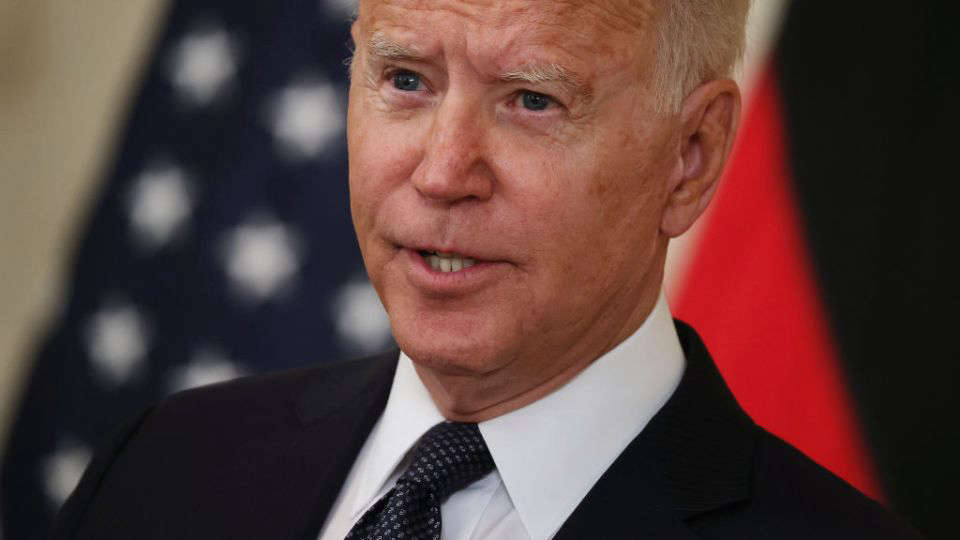
Missouri lawmakers on Thursday gave final approval to an income tax cut that Gov. Mike Parson requested, and ditched a last-minute proposal to cut corporate taxes.
The report below is from Emily Manley of Ozarks First with additional reporting from the Associated Press:
This special session has been a work in progress for months. Gov. Mike Parson, called the General Assembly back to lower the state’s income tax and to reauthorize tax credits for farmers. Parson wanted members to cut the income tax rate from 5.3% to 4.8%, but last week, the Senate passed its own version. On Thursday, the House approved the upper chamber’s legislation, sending it to the governor’s desk.
The Republican-led Missouri House voted 98-32 in favor of the bill, which would cut income taxes from 5.3% to 4.95% beginning next year and phase in additional cuts until the rate hits 4.5%. The bill applies to the top income tax rate, which covers those who make more than about $8,700 a year in taxable income.
The roughly $1 billion measure also eliminates the lowest tax bracket, meaning earners who bring in less than about $1,000 a year no longer will have to pay state income taxes.
The measure now heads to Parson, who is expected to sign it. The Republican governor called lawmakers back to work to spend some of the state’s record revenue surplus on tax cuts.
“We are thrilled that the General Assembly has answered our call to cut Missourians’ taxes and return some of their hard-earned dollars,” he said in a statement.
If Parson signs the bill into law, taxpayers who make between $22,000 and $66,000 a year would on average see savings of between $10 and $50 next year because of the income tax cut, according to an analysis by the Missouri Budget Project. The organization analyzes state budget policy and its impact on low-income families.
Once the income tax rate hits 4.5%, savings for those workers would amount to roughly $29 to $131 a year on average, according to the same analysis.
Earners who make $66,000 to $110,000 a year would on average see about $120 in immediate savings and $275 per year in savings once the full tax cuts kick in.
And taxpayers who make about $1.6 million per year would save roughly $4,200 next year and $9,500 per year once the bill is fully implemented.
In an exclusive interview with Nexstar’s Missouri Capitol Bureau Chief Emily Manley, Parson said those numbers aren’t true.
“I know there’s a lot of think-tanks out there that are saying like someone making $50,000 is only going to get $6, I think that’s a lot of propaganda,” Parson said. “I don’t know anyone getting a $3 tax cut. Most people are going to generate much more than that and one thing you have to remember, it’s forever, so every year you’re going to be getting that.”
According to Parson’s office, for a Missourian making $35,000 a year, he or she is estimated to save $141. For a single adult bringing home $25,000 a year, they can expect a tax cut of $115 whereas someone making $40,000 a year would save $170. Those earning around $75,000 a year would save $324.
“It’s because our economy has done so well in this state over the last two or three years and continues to grow, that we’re able to do this and still maintain all the services at record amounts of money, at the highest levels in our state’s history,” Parson said.
Democrats and some Republicans criticized the measure as favoring wealthier Missourians while doing little for low-income families and retired workers on fixed incomes.
Republican Rep. Bill Kidd, R-Buckner, described the income tax cuts as taking a “small bite” out of Missourians’ tax burden. The lawmaker, who is barred by term limits from seeking reelection, said families have a harder time paying personal property taxes and called on lawmakers to address that issue and the state’s tax brackets next session.
“Please do something that’ll impact real people, the people who cannot afford to pay their taxes,” Kidd said. “If you’re in the $100,000 to $200,000 range, then you’re going to like this tax cut. But if you’re a poor person or a fixed-income (resident), this doesn’t do it. That’s the truth.”
Members on the other side of the aisle say this tax cut is irresponsible.
“Republicans are going to go back to their districts and talk about how they are putting money back in Missourians’ pockets,” said House Minority Leader, D-Springfield. “They won’t tell you that most folks will get a few bucks a year. This will have a devastating impact on the state’s treasury that will take the state years to recover from, and all to give an unnecessary election year tax cut to the wealthy.”
Parson’s plan was to cut the top individual income tax rate to 4.8%, as well as increase the standard deduction by $2,000 for single filers and $4,000 for couples.
More than two dozen other states have passed or are considering tax cuts or rebates in response to an outpouring of federal pandemic aid and their own surging tax revenue.
The bill Missouri lawmakers passed represents a compromise between Republican senators who wanted even deeper tax cuts and those worried about cutting so much that government services might need to be slashed if future revenue collections are not as strong. It does not include an increase to the standard deduction.
The House also on Thursday stripped a last-minute proposal to phase out corporate income taxes. Besides that, members also took off an amendment added by Rep. Hannah Kelly, R-Mountain Grove, that would offer adoption non-refundable tax credits to Missourians who recently adopted a child. There would be a $6 million cap for the entire state. The lower chamber also removed Aldridge’s provision tacked that would have reduced the sales tax on feminine hygiene products.
Pulling back the corporate tax cut amendments in effect blocked House lawmakers from trying to amend the bill Thursday. By passing the same bill as the Senate, the House ended the special session and let senators off the hook from returning to the Capitol to negotiate potential differences between the chambers.
The other reason why lawmakers are here for a special session is to reauthorize tax credits for farmers. Last week, both chambers passed their own version of the tax credits. The governor vetoed that bill after regular session because he wanted a six-year plan instead of two.
The tax incentives help farmers and ranchers throughout the state. It includes the creation of tax credit programs for retailers of higher ethanol blend fuels and biodiesel, in-state biodiesel producers, establishing or improving urban farm operations, and creating the Specialty Agricultural Crops Act. Tax credits would be extended for meat processing facility improvements, transportation of agricultural goods, and an exemption for certain vehicles from state and local sales and use taxes. The General Assembly will be back to work next week to work on the agricultural tax cuts.


 Giving Tuesday
Giving Tuesday
 Blue Eye School District Recognizes Driver Who Helped Student Who Was Choking
Blue Eye School District Recognizes Driver Who Helped Student Who Was Choking
 President Biden gives remarks for World AIDS Day
President Biden gives remarks for World AIDS Day
 Miracle on Wolf Lane Scheduled for December 7
Miracle on Wolf Lane Scheduled for December 7







